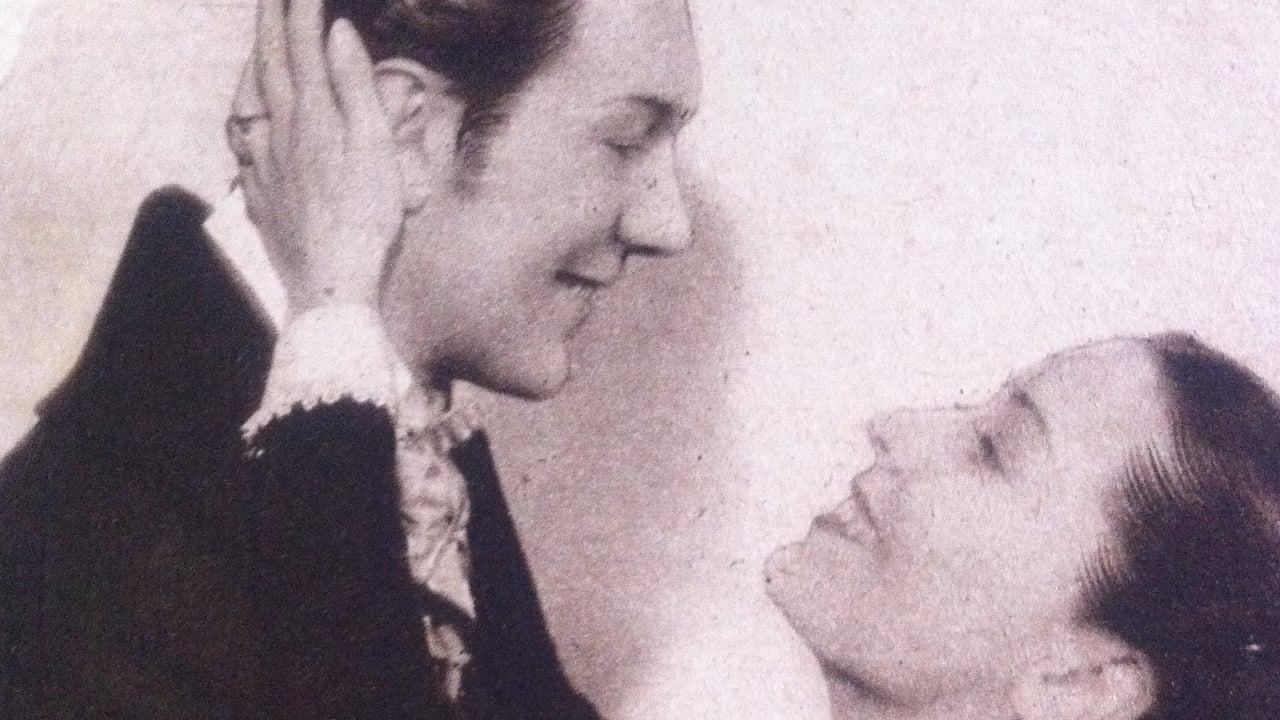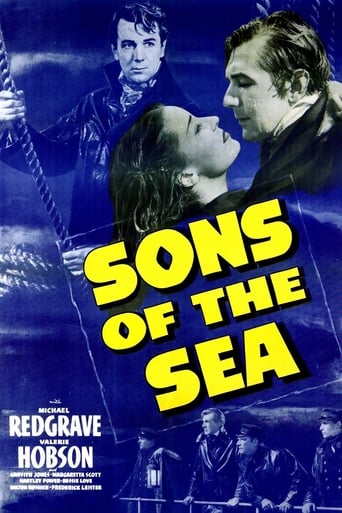



Admirable film.
The performances transcend the film's tropes, grounding it in characters that feel more complete than this subgenre often produces.
View MoreIt's hard to see any effort in the film. There's no comedy to speak of, no real drama and, worst of all.
View MoreThe tone of this movie is interesting -- the stakes are both dramatic and high, but it's balanced with a lot of fun, tongue and cheek dialogue.
View MoreThis is one of the 55 films directed by Walter Forde, who also directed ALIAS BULLDOG DRUMMOND (1935, see my review) and SALLOON BAR (1940, see my review). Jack Clayton was an uncredited second assistant director on this film. It was the last film he worked on until the end of the War, when he directed (uncredited) a 15 minute documentary about fighting in Italy for the Ministry of Information, resuming his British film career only in 1947, when at last he got a screen credit as assistant director on Anthony Asquith's film of a Terence Rattigan play, WHILE THE SUN SHINES (which is unavailable today and unreviewed on IMDb). This film (also known as SONS OF THE SEA) is rather unsatisfactory. There was a great deal of trouble with the story and script, as three screenwriters including Emeric Pressburger were unable to come up with something that worked. The episodes of the film are stitched together by several lengthy cards of text telling us what happened between times, which is hardly a successful dramatic device. Since two men named MacIver are credited with the story, which concerns the attempts by the MacIver family to establish an Atlantic steamship trade in partnership with the Canadian Sam Cunard, I presume they were descendants of the 19th century men seen in the film, and that the story was a true one which they were able to tell. The film is interesting despite being cinematically inferior. Valerie Hobson plays the female lead, but she has little to do except look pretty in a somewhat artificial way and make two fiery speeches which are only partially convincing. This film was certainly not one of Miss Hobson's high points. Michael Redgrave is the male lead, but Redgrave has never struck me as being at all convincing on screen when he pretends to have an interest in women, as it is well known that he was gay. He is just about as frigid a lover as any woman could imagine. Redgrave could in those circumstances be so remote in spirit from the camera that his closeups effectively become long shots. At times he seems to convey a hatred for the female sex which he can barely restrain or conceal, and ice forms on his brow rather than sweat when proximity to a woman threatens him. The story of this film certainly has a great deal of historical importance, being a genuine saga of the high seas. And the section of the film early on in which ruthless men are taking the money of desperate people to be shipped across the Atlantic as emigrants in horrible conditions, so that many of them die on the way, is all too relevant to today, what with the evil doings of the people smugglers which we read about in the press every day now. This film certainly is no cinematic triumph, but if you are interested in how steamships got going on the Atlantic against all the odds, you will want to see it. Some of the thumping speeches about British-American friendship which recur in this film are clearly motivated by wartime propaganda concerns, and that detracts from the film's dramatic force, of which there is little, for it is the roaring sea which has all the force here.
View MoreSONS OF THE SEA aka Atlantic FERRY (1941) is another of those hands across the seas pictures meant too solidify the relationship of Great Britain and the U.S.A. Though a Warner Brothers (WB) release this is a British production and the cast reflects this as well as the rather 'cheesy' production values. If you can ignore its technical short-comings the cast does a fine job. Lead by Michael Redgrave, who is a little too much 'stiff upper lip' and the luminous Valerie Hobson, who never disappoints.If the plot of the development of trans-Atlantic Steam-Ship travel seems familiar, it is. Two (2) years earlier Paramount released RULERS OF THE SEA (1939) featuring Douglas Fairbanks Jr. and Margaret Lockwood as the romantic leads. Which we also rate IMDb******Six (6). Its main advantage was having Gordon Jennings head of the SFX department at Paramount and that Mr. Fairbanks Jr. is a FAR more engaging lover then Mr. Redgrave. If his lack of 'sex-appeal' had been typical of Englishmen the Country would be depopulated!Both films are a enjoyable matinée watch and if you can view them 'back to back' you will see the contrast in production styles. The WB did not invest as much into their production as did Paramount. Neither are 'classics', but worth watching every few years.
View MoreAtlantic Ferry, made by Warner Brothers in Great Britain celebrates the conglomerate that formed the Cunard line which inaugurated steam powered travel across the ocean. Of course this film was made at a time when Great Britain was trying ever so hard to get the United States involved in the second World War on their side and Warner Brothers was the studio most involved in that. The year before in America they had done The Sea Hawk and before that Confessions Of A Nazi Spy.The emphasis here is on shipping magnates Charles and David MacIver who joined with Samuel Cunard to provide regular passenger and cargo service across the Atlantic. The brothers are played by Michael Redgrave and Griffith Jones with style and conviction. These two don't always see eye to eye and there's a rivalry going between them for Valerie Hobson.Naturally the folks who are heavily invested in sail not thrilled with what the brothers propose. That scene where one self styled 'expert' says that the real problem is storage of fuel and there's no place to refuel in the middle of the ocean. Americans felt even stronger about that put their faith in sail for years longer than the British. It's also way we and the British acquired such odd places as the Falkland Islands for them and Midway for us to serve as coaling, later diesel refueling stations for our cargo, passenger, and most important, our military naval fleets. That 'expert' is voicing real concerns.American Hartley Power is playing Sam Cunard who was Canadian from Halifax and was already operating successfully in steam before doing the Transatlantic run. He acts as a steadying influence between the sometimes contentious brothers MacIver.Atlantic Ferry is a good historical and biographical film about a singular development in transportation. The sailing scenes are handled well by the special effects department and as a hands across the sea propaganda film, Atlantic Ferry holds up well today.
View MoreThe action begins in 1837 when steamships were new and seemed to have little chance of supplanting sailing vessels upon the seas, until England's Charles and David MacIver attempted to develop the new underdog invention for commercial use. The sailing ships were seen as "coffins" with their owners emphasizing the importance of capital profit rather than passenger safety and this film is based upon the real life efforts conducted by David. Scripted by his descendants, Derek and Wynne MacIver, the work demonstrates the increased safety value of the steamships for passengers, although MacIver was considered reckless beyond redemption. When the fictional pair's first efforts prove to be akin to farce, Charles, portrayed with panache by Michael Redgrave, refuses to concede defeat, and presses on, despite a lack of funding or general support, in an attempt to prove that the view of his stodgy rivals is erroneous. His brother David (Griffith Jones), however, rejects the eternal freshness in the attitude of Charles, as depicted by Redgrave, and decides to withdraw his underpinning, leading to a coolness between the two. Charles eventually obtains financial backing and is bound to prove to all that the improvement in safety, coupled with increased reliability of the new breed of craft, will prove profitable to all concerned. To establish his credentials within the shipping industry, Charles will have to develop regular steamship travel between Great Britain and the United States, and he sets out to do so. By journeying upon a typical sailing craft, Charles is exposed to and experiences the common dismal and dangerous conditions for passengers, which serves to enforce his faith in steam power as an improved alternative. Woven with all of this is a contest betwixt the smitten brothers for the heart of beautiful Valerie Hobson, who plays well as the daughter of a potential sponsor, and there are fine acting turns by others in the splendid cast, including Henry Oscar, Margaretta Scott and Felix Aylmer. Director Walter Forde leads the players crisply through the always interesting and well-written scenario, and he and editor Terence Fisher, of later Hammer Films renown, unite in generating the film's most dramatic set of sequences, an expansive competition faced by a quick sailing ship and one utilizing steam. Although there are two brief moments of propagandistic moralizing (the work was released in 1941 when Britain was forcefully urging the U.S. to enter the war in Europe), this remains outstanding historic cinema, a good tale, well told.
View More